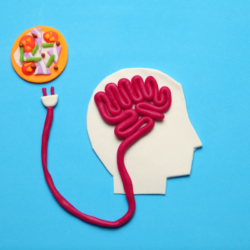Everyday life can be a challenge for people with high intellectual potential. With their unique abilities and needs, it’s essential to understand how to effectively manage the challenges they face. In this article, we explore different strategies and tips for managing everyday life as a person with high intellectual potential.
What is high intellectual potential?
High intellectual potential, also known as giftedness, refers to above-average intellectual ability. People with high intellectual potential are quick learners, highly creative and complex thinkers. They can process information in depth and make original associations. Individuals with high intellectual potential often have varied interests and an insatiable curiosity.
How do you recognise an HPI?
People with high intellectual potential have certain distinctive characteristics. They may include great emotional sensitivity, networkedthinking, a tendency to question authority and a great capacity forattention and concentration. Individuals with high intellectual potential may also have difficulty adapting to social expectations and may feel out of step with their peers.
What is the difference between HPI and HPE?
High Intellectual Potential (HIP) and High Emotional Potential (HEP) are two distinct concepts that describe types of high potential in individuals, each manifested in a unique way.
- High Intellectual Potential (HPI): HPI refers to exceptional intelligence, often characterised by a significantly above-average intelligence quotient (IQ). HPI individuals tend to have abilities for analytical thinking, problem solving and conceptual understanding that surpass those of their peers. They can learn and assimilate information quickly, demonstrate intellectual curiosity, and often excel in one or more academic areas. However, they may also experience challenges such as boredom, social anxiety and increased sensitivity to expectations and pressures.
- High Emotional Potential (HPE): HPE refers to heightened emotional sensitivity and intelligence. People with HPE are extremely receptive to their own emotions and those of others. They often have great empathy, an ability to perceive and understand the nuances of emotional states, and can be particularly effective in managing interpersonal relationships. Nevertheless, this emotional sensitivity can sometimes lead to emotional overload, anxiety and challenges in managing stress.
In short, HPI focuses on intellectual and cognitive abilities, while HPE focuses on understanding and managing emotions. It is important to recognise that these two types of high potential can coexist in the same person, but they can also occur independently of each other.
Zebra, intellectual high potential, cognitive high potential, atypical person
The terms “Zebra”, “High Intellectual Potential (HIP)”, “High Cognitive Potential (HPC)” and “Atypical Person” are often used in the context of psychology to describe individuals with distinct characteristics or abilities. Although these terms are sometimes used interchangeably, they have important nuances.
- Zebra: This term, popularised by French psychologist Jeanne Siaud-Facchin, is used to describe people with high intellectual potential. The term ‘zebra’ is metaphorical, suggesting that each zebra has unique stripes, just as each high-potential person has their own particularities. It emphasises the diversity and uniqueness of these individuals’ experiences, over and above their IQ.
- High Intellectual Potential (HPI ): HPI refers to above-average intelligence, often measured by a high IQ. HPI individuals may have advanced abilities in reasoning, learning, understanding and creativity. They may excel in various intellectual and academic areas but may also face specific emotional and social challenges.
- High Cognitive Potential (HPC): HPC is a term similar to HPI, but it focuses more on the cognitive aspects of intelligence. This includes memory, perception, problem solving and information processing. Like HPI, HPC is characterised by significantly above-average intellectual ability.
- Atypical Person: This term is broader and may include HPI/HPC individuals, but it may also include other forms of atypicalism, such as neurological differences (such as autism), exceptional talents or abilities, or patterns of thought and behaviour that deviate from conventional norms.
The day-to-day challenges faced by people with high potential
People with high intellectual potential can face certain challenges in their daily lives. They may feel overwhelmed by a constant stream of ideas and find it difficult to concentrate on a single task. They may also feel bored when faced with repetitive tasks or a lack of intellectual stimulation. People with high intellectual potential may also find it difficult to manage their emotions appropriately and may feel overwhelmed by their heightened sensitivity.
Managing emotions and sensitivity
Managing emotions and sensitivity is essential for people with high intellectual potential. It is important to recognise and understand one’s own emotions, as well as the factors that trigger them. Practising relaxation techniques, such as deep breathing and meditation, can help to reduce stress and promote emotional well-being. It is also useful to find ways of channelling emotions in a positive way, through art, writing or other forms of creative expression.
Striking a balance between stimulation and boredom
People with high intellectual potential need a balance between intellectual stimulation and boredom. It’s important to find activities that stimulate the mind and match personal interests. Reading, problem-solving, taking part in intellectual discussions and exploring new ideas are all ways of maintaining adequate intellectual stimulation. However, it is also important to take time to rest and relax, to prevent mental and emotional exhaustion.
Setting goals and managing your time
Setting clear goals and managing time effectively are essential skills for people with high intellectual potential. Setting specific and achievable goals can help to maintain motivation and stay focused on the tasks in hand. It’s also important to learn how to manage time effectively by setting priorities and using time management techniques such as the Pomodoro method.
Cultivating social relationships
Developing healthy social relationships is important for people with high intellectual potential. It’s essential to find like-minded people and take part in activities that encourage positive social interaction. Joining clubs, interest groups or online communities can be a great way to meet and connect with other like-minded people.
Managing perfectionism and procrastination
Perfectionism and procrastination can be common pitfalls for people with high intellectual potential. It’ s important to recognise that perfection isn’t realistic and that it’s better to focus on progress rather than perfection. Using perfectionism management techniques, such as setting realistic deadlines and accepting one’s own limitations, can help overcome these challenges. Procrastination can be avoided by using planning and prioritisation techniques, as well as identifying obstacles that prevent a task from being started.
Fulfilling your professional potential as an HPI
People with high intellectual potential often have high professional aspirations. It is important to find a field that matches their interests and abilities. Continuous learning, developing specific skills and seeking opportunities for growth and advancement are essential. It is also important to find a balance between professional and personal life in order to prevent burnout.
Managing stress and pressure
People with high intellectual potential can be particularly sensitive to stress and pressure. It’s important to find stress management techniques that work for each individual. This can include relaxing activities, such as physical exercise, hobbies or relaxation techniques. Managing stress can also be helped by good organisation, breathing techniques and effective communication.
Finding appropriate learning strategies
People with high intellectual potential can benefit from learning strategies adapted to their needs. It can be useful to diversify learning methods by using a variety of resources, such as books, videos, online courses and discussions with other people. Using effective memory techniques, such as creating mnemonics or using mental maps, can also facilitate the learning process.
Coping with failure and developing resilience
Coping with failure and developing resilience are important skills for people with high intellectual potential. It is essential to understand that failure is part of the learning process and can lead to growth and improvement. It is important to develop a positive attitude towards failure, to learn from mistakes and to bounce back quickly. The practice of resilience can be reinforced by stress management techniques, a positive outlook and social support.
Taking care of your mental health
Mental health is a priority for people with high intellectual potential. It is important to look after your mental health by practising self-care on a regular basis. This can include relaxing activities such as meditation, soothing scents, yoga or spending time in nature. It is also essential to seek professional support if necessary. Finally, remember that there’s no shame in asking for help.
Find stimulating and exciting activities
People with high intellectual potential thrive when they are involved in stimulating and exciting activities. It is important to seek out intellectual challenges and take part in activities that arouse interest and curiosity. This might include taking part in creative projects, exploring new subjects, playing a musical instrument or engaging in stimulating physical activities.
Finding support and reaching out to communities
Finding support and joining groups is essential for people with high intellectual potential. It helps to connect with others who share the same interests. As well as taking part in online groups or forums. Belonging to a community can offer support, advice and opportunities for personal growth.
Developing self-confidence
Developing self-confidence is essential for people with high intellectual potential. It is important to recognise one’s own strengths and achievements, and to set achievable goals. Practising self-compassion and self-acceptance can also help to develop self-confidence. Positive achievements and experiences, as well as social support and encouragement, boost self-confidence.
Showing self-compassion
Showing self-compassion is important for people with high intellectual potential. It is essential to recognise one’s own limitations and to treat oneself with kindness and benevolence. Practising self-compassion can help to reduce perfectionism and develop a positive attitude towards oneself.
How can I boost my cognitive functions with natural remedies available in pharmacies?
In recent years, scientific research has paid particular attention to identifying and analysingnatural active ingredients likely toimprove cognitive function. The table below summarises the substances and plants studied in this context, based on their mention in various recent scientific studies. These active ingredients highlight their potential for supporting cognitive health, improving memory, concentration and other essential brain functions.
| Active ingredient/Substance | Main function |
|---|---|
| Ginkgo Biloba | Improves cerebral circulation, memory, concentration |
| Panax Ginseng | Improves cognitive performance, memory, concentration |
| Turmeric (Curcumin) | Anti-inflammatory and antioxidant properties, memory improvement |
| Omega-3 (DHA and EPA) | Support for brain function, prevention of cognitive decline |
| Bacopa Monnieri | Improves speed of information processing, memory |
| Rhodiola Rosea | Stress management, improved concentration and memory |
| Ashwagandha (Withania Somnifera) | Reduces stress, improves memory and cognitive functions |
| B vitamins (B6, B9, B12) | Maintains cognitive health, prevents cognitive disorders |
| Vitamin D | Supports brain function, improves cognitive function |
| Green tea (EGCG) | Neuroprotection, improved memory and attention |
| Resveratrol | Antioxidant properties, potential for brain health |
| Amino acids (e.g. L-theanine) | Improved concentration, relaxation |
| Lion’s Mane (Hericium Erinaceus) | Stimulates nerve cell growth, memory |
| Flavonoids | Improves memory, learning, cognitive functions |
| Magnesium L-Threonate | Improves synaptic plasticity, cognitive function |
| Caffeine | Improves concentration, attention |
| Vitamin E | Protection of brain cells, cognitive health |
| Selenium | Protection against oxidative stress, beneficial effects on cognition |
| Gotu Kola(Centella Asiatica) | Neuroprotective properties, improved memory and mental clarity |
| American ginseng (Panax Quinquefolius) | Improves memory and cognitive function |
| Huperzine A | Potential for improving memory and cognitive function |
| Alpha-Lipoic Acid | Protects brain cells, improves cognitive function |
| Acetyl-L-Carnitine | Production of energy in the brain, improved memory and cognitive function |
Sources
- https://www.ncbi.nlm.nih.gov/pmc/articles/PMC7071459/
- https://www.ncbi.nlm.nih.gov/pmc/articles/PMC9415189/
- https://www.ncbi.nlm.nih.gov/pmc/articles/PMC3311304/







